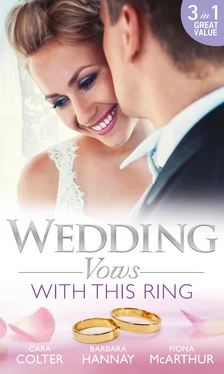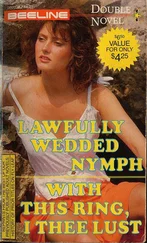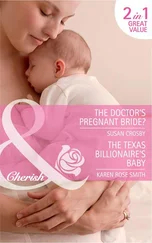“Yes, it’s bad.” He closed the fuchsia cover on one of the project reports, the mauve one on another and put those files on the desk between them. “The Easter Egg hunt is gone. The poetry competition is out. And I’m looking at the prom dress thing, and—”
“Prom Dreams?” she gasped. “You can’t! You don’t know what it means to those girls.”
“Have you ever known real hardship?” he asked her, his voice deliberately cold. This job was not going to be easy no matter how he did it. Hard choices had to be made. And he had to see if she was willing to make them. There was no way she was going to be suited to taking over the top job at Second Chances if she was always going to be blinded by the stars in her eyes.
But cad that he was, his gaze went to the lip that she was nibbling with distraction. He was shocked that out of the blue he wondered if one of his hard choices was not going to be whether or not to taste those luscious lips before he made his escape!
She met his eyes. Stopped nibbling. Things that should be simple, cut-and-dried, suddenly seemed complicated. He wished she wasn’t looking at him as if she was remembering, too, that unguarded moment when two strangers had touched and the potential for something wild and unpredictable had arced in the air between them.
“My parents divorced when I was young,” she offered, softly. “I considered that a terrible hardship. The only one I’ve known, but life altering.”
Thank God she didn’t mention the cad! He could see the pain in her eyes. Houston reminded himself, sternly, that he likely had a genetic predisposition toward allowing women to make him crazy. Because he had no business thinking of trying to change the light in her eyes. But he was thinking of it, of how soft her lips would be beneath his own.
Why would that genetic predisposition toward crazy be surfacing now, for God’s sake? He’d been around many, many beautiful women. He’d always taken his ability to keep his emotional distance for granted, one of the few gifts from his chaotic childhood.
Don’t form attachments. Don’t care too deeply.
Except for his business and boxing. Both had rigid guidelines and rules that if followed, produced a predictable result. That made them safe things to care about. An occasional bruised knuckle or fat lip, a skirmish in the business world, those hazards were nothing compared to the minefields of becoming attached to people, where the results were rarely predictable.
No, he knew exactly where he was going to channel his substantial passion and energy.
He was being drawn backward, feeling shadows from his past falling over him, entirely against his will. He blamed the letter from his father and the unfortunate fact it coincided with the past weeks of going over files of people who were as desperate and as needy as his family had once been.
It was his annoyance at himself for allowing those thoughts into his business world that made his tone even sharper than it had to be, even if he was testing her ability to run a million dollar corporation.
“Have you ever been hungry?” But even as he asked it, he knew that question, too, stemmed not so much from professional interest as from a dark past he thought he had left behind.
“No,” she said, “but I think I can imagine the desperation of it.”
“Can you?” he said cynically.
Without warning a memory popped over the barrier of the thick, high wall he had constructed around the compartment of his childhood.
So hungry. Not a crumb of food in the house. Going into Sam’s, the bakery at the corner of his street, Houston’s heart beating a horrible tattoo in his chest, his mouth watering from the smells and the sights of the freshly baked bread. Looking around, it was crowded, no one paying any attention to him. Sam’s back turned. Houston’s hands closing around one of the still-warm loafs in a basket outside the counter, stuffing it under his thin jacket. Lifting his eyes to see Sam looking straight at him. And then Sam turning away, saying nothing, and Houston feeling the shame of the baker’s pity so strongly he could not eat the bread. He brought it home to his mother, who had been indifferent to the offering, uncaring of what it had cost him.
Molly was looking at him, understandably perplexed by the question.
Stop it, he ordered himself. But another question came out anyway, clipped with unexpected anger. “Out of work?”
“I don’t suppose the summer I chose to volunteer here instead of taking a paying job counts, does it?”
“The fact you could make a choice to volunteer instead of work indicates to me you have probably not known real hardship.”
“That doesn’t make me a bad person!” she said sharply. “Or unqualified for my job!”
“No,” he said, taking a deep breath, telling himself to smarten up. “Of course it doesn’t. I’m just saying your frame of reference when choosing projects may not take into account the harsh realities the people you are helping live with.”
Another memory popped over that wall. His father drunk, belligerent, out of work again. Not his fault. Never his fault. His mother screaming at his father. You loser. The look on his father’s face. Rage. The flying fists, the breaking glass.
Houston could feel his heart beating as rapidly as though it had just happened. Molly was watching him, silently, the dismay and anger that had been in her face fading, becoming more thoughtful.
He ordered himself, again, to stop this. It was way too personal. But, master of control that he was, he did not stop.
“Have you ever had no place to live?”
“Of course not!”
Homelessness was so far from her reality that she could not even fathom it happening to her. Not that he had any right to treat that as a character defect, just because it had once been part of his childhood reality.
The eviction notice pounded onto the door. The hopeless feeling of nowhere to go and no place to feel safe. That sense that even that place he had called home was only an illusion. A sense that would be confirmed as the lives of the Whitfords spiraled steadily downward toward disaster.
Again Molly was silent, but her eyes were huge and had darkened to a shade of green that reminded him of a cool pond on a hot day, a place that promised refuge and rest, escape from a sizzling hot pressure-cooker of a world.
Her expression went from defensive to quiet. She studied his face, her own distress gone, as if she saw something in him, focused on something in him. He didn’t want her to see his secrets, and yet something in her steady gaze made him feel seen, vulnerable.
“You’re dealing with desperation, and you’re doling out prom dresses? Are you kidding me?”
Houston was being way too harsh. He drew a deep breath, ordered himself to apologize, to back track, but suddenly the look on her face transformed. Her expression went from that quiet thoughtfulness to something much worse. Knowing.
He felt as transparent as a sheet of glass.
“You’ve known those things, haven’t you?” she guessed softly.
The truth was he would rather run through Central Park in the buff than reveal himself emotionally.
He was stunned that she had seen right through his exquisite suit, all the trappings of wealth and success, seen right through the harshness of his delivery to what lay beneath.
He was astounded that a part of him—a weak part— wanted to be seen. Completely.
He didn’t answer her immediately. The part of him that felt as if it was clamoring to be acknowledged quieted, and he came back to his senses.
He had to apply his own rules right now, to set an example for her. Don’t form attachments. Don’t care too deeply. Not about people. Not about programs.
Читать дальше












